Dave Bacon
TensorFlow Quantum: A Software Framework for Quantum Machine Learning
Mar 06, 2020


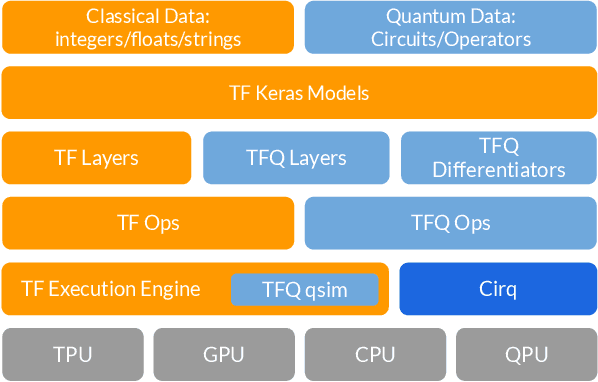
Abstract:We introduce TensorFlow Quantum (TFQ), an open source library for the rapid prototyping of hybrid quantum-classical models for classical or quantum data. This framework offers high-level abstractions for the design and training of both discriminative and generative quantum models under TensorFlow and supports high-performance quantum circuit simulators. We provide an overview of the software architecture and building blocks through several examples and review the theory of hybrid quantum-classical neural networks. We illustrate TFQ functionalities via several basic applications including supervised learning for quantum classification, quantum control, and quantum approximate optimization. Moreover, we demonstrate how one can apply TFQ to tackle advanced quantum learning tasks including meta-learning, Hamiltonian learning, and sampling thermal states. We hope this framework provides the necessary tools for the quantum computing and machine learning research communities to explore models of both natural and artificial quantum systems, and ultimately discover new quantum algorithms which could potentially yield a quantum advantage.
Learning Non-Markovian Quantum Noise from Moiré-Enhanced Swap Spectroscopy with Deep Evolutionary Algorithm
Dec 09, 2019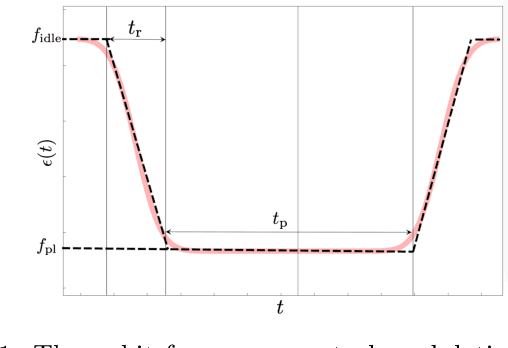
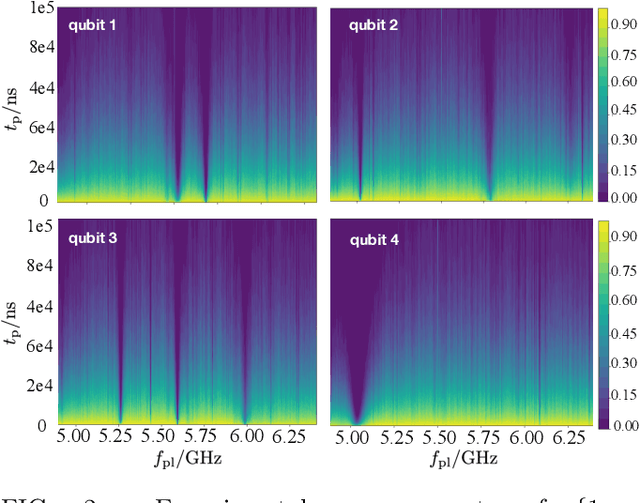
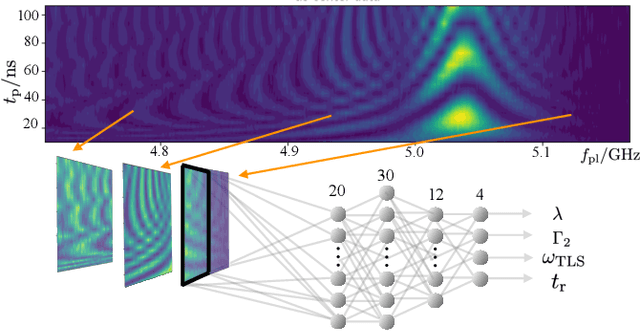
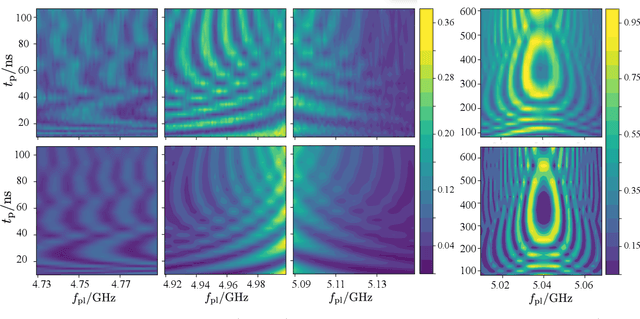
Abstract:Two-level-system (TLS) defects in amorphous dielectrics are a major source of noise and decoherence in solid-state qubits. Gate-dependent non-Markovian errors caused by TLS-qubit coupling are detrimental to fault-tolerant quantum computation and have not been rigorously treated in the existing literature. In this work, we derive the non-Markovian dynamics between TLS and qubits during a SWAP-like two-qubit gate and the associated average gate fidelity for frequency-tunable Transmon qubits. This gate dependent error model facilitates using qubits as sensors to simultaneously learn practical imperfections in both the qubit's environment and control waveforms. We combine the-state-of-art machine learning algorithm with Moir\'{e}-enhanced swap spectroscopy to achieve robust learning using noisy experimental data. Deep neural networks are used to represent the functional map from experimental data to TLS parameters and are trained through an evolutionary algorithm. Our method achieves the highest learning efficiency and robustness against experimental imperfections to-date, representing an important step towards in-situ quantum control optimization over environmental and control defects.
Federated Learning: Strategies for Improving Communication Efficiency
Oct 30, 2017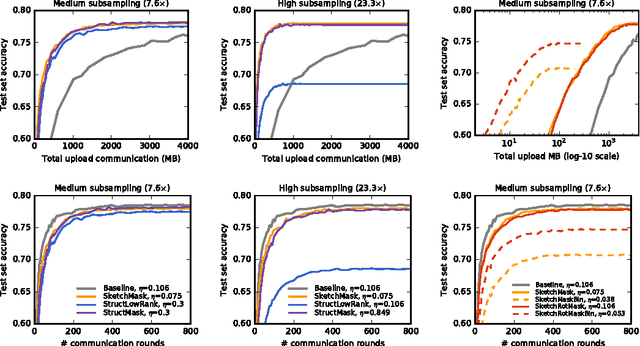
Abstract:Federated Learning is a machine learning setting where the goal is to train a high-quality centralized model while training data remains distributed over a large number of clients each with unreliable and relatively slow network connections. We consider learning algorithms for this setting where on each round, each client independently computes an update to the current model based on its local data, and communicates this update to a central server, where the client-side updates are aggregated to compute a new global model. The typical clients in this setting are mobile phones, and communication efficiency is of the utmost importance. In this paper, we propose two ways to reduce the uplink communication costs: structured updates, where we directly learn an update from a restricted space parametrized using a smaller number of variables, e.g. either low-rank or a random mask; and sketched updates, where we learn a full model update and then compress it using a combination of quantization, random rotations, and subsampling before sending it to the server. Experiments on both convolutional and recurrent networks show that the proposed methods can reduce the communication cost by two orders of magnitude.
 Add to Chrome
Add to Chrome Add to Firefox
Add to Firefox Add to Edge
Add to Edge